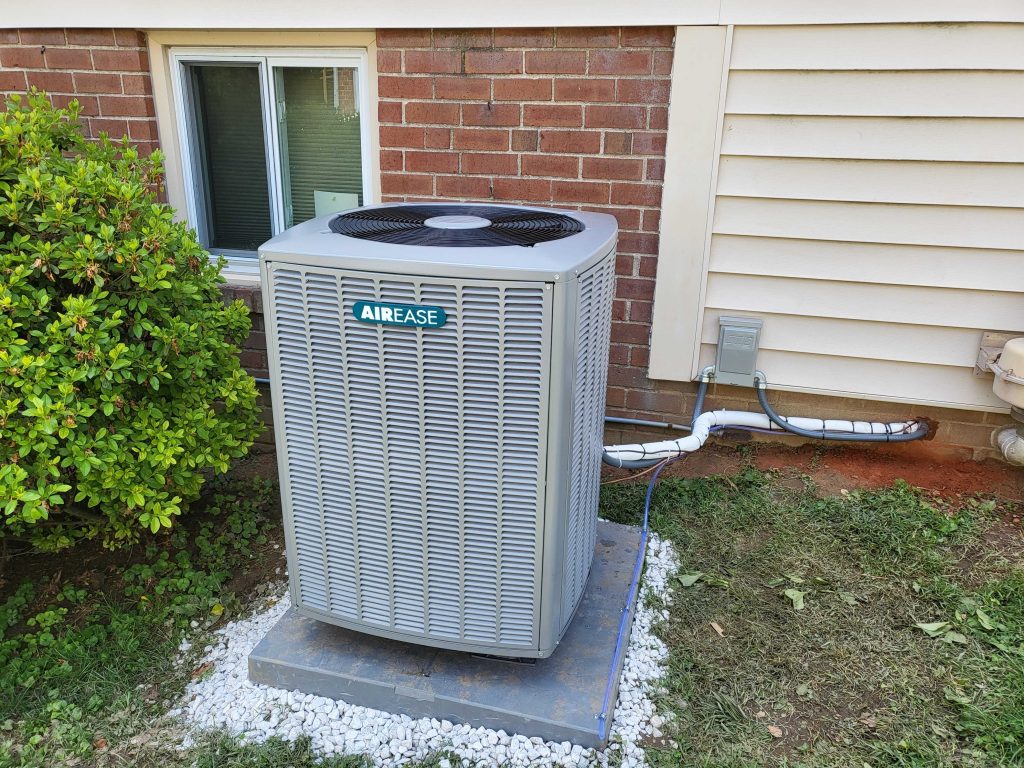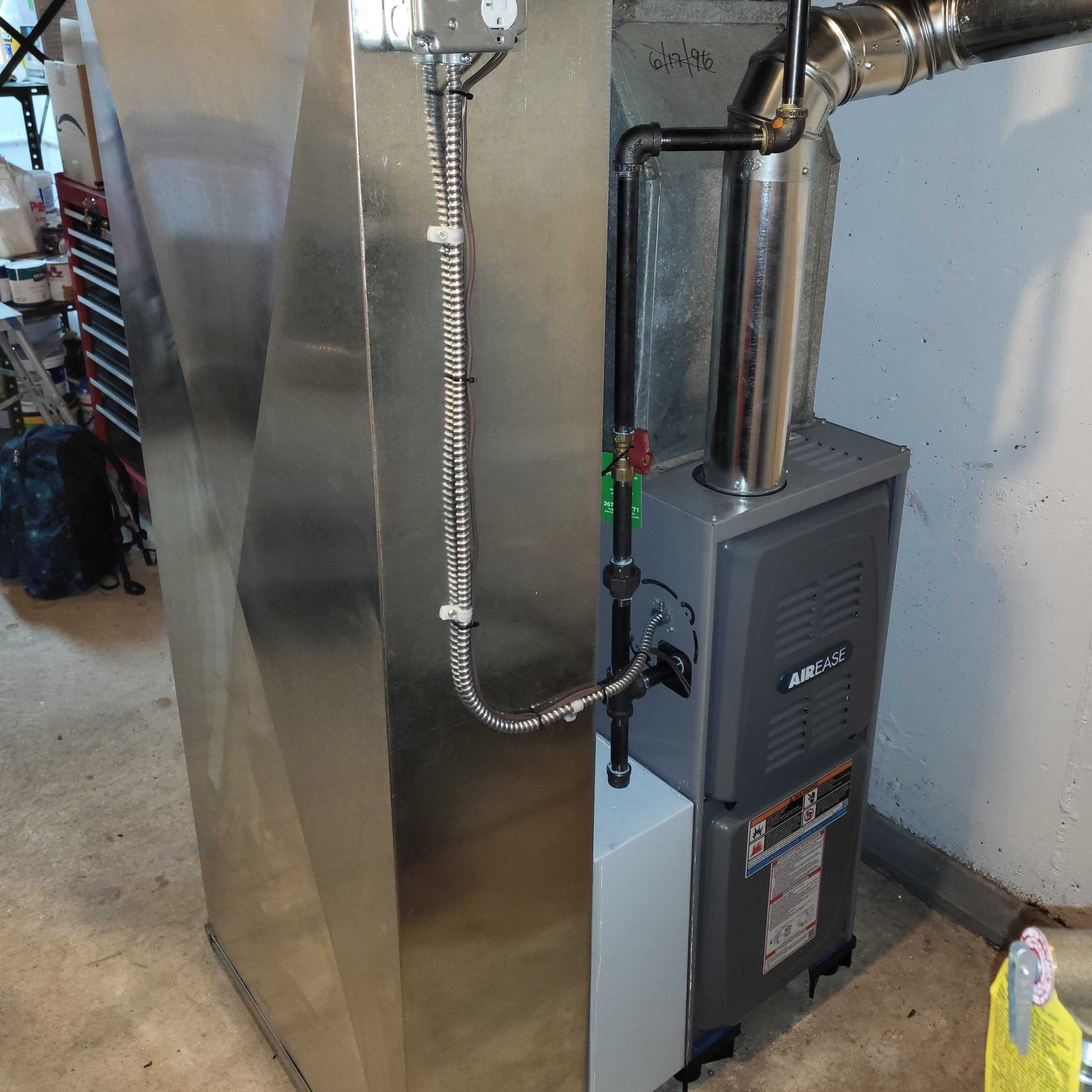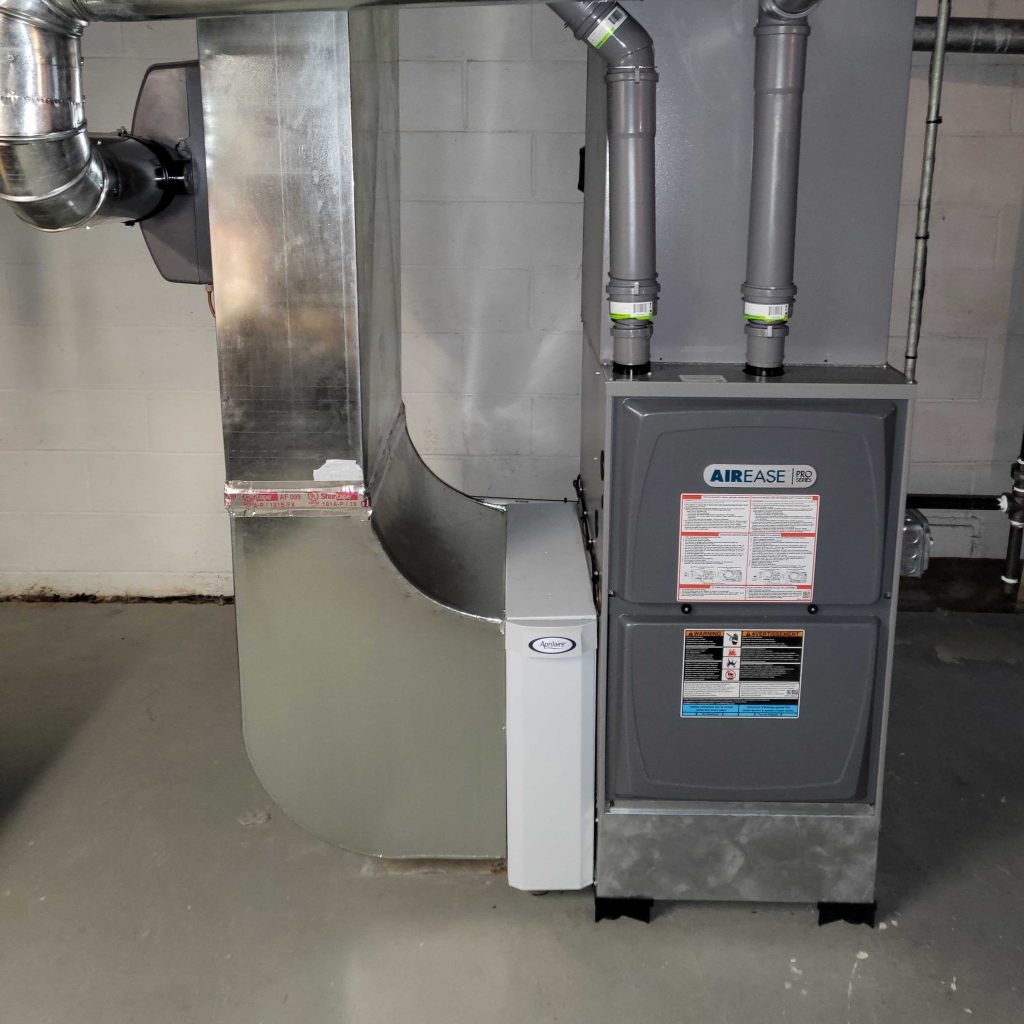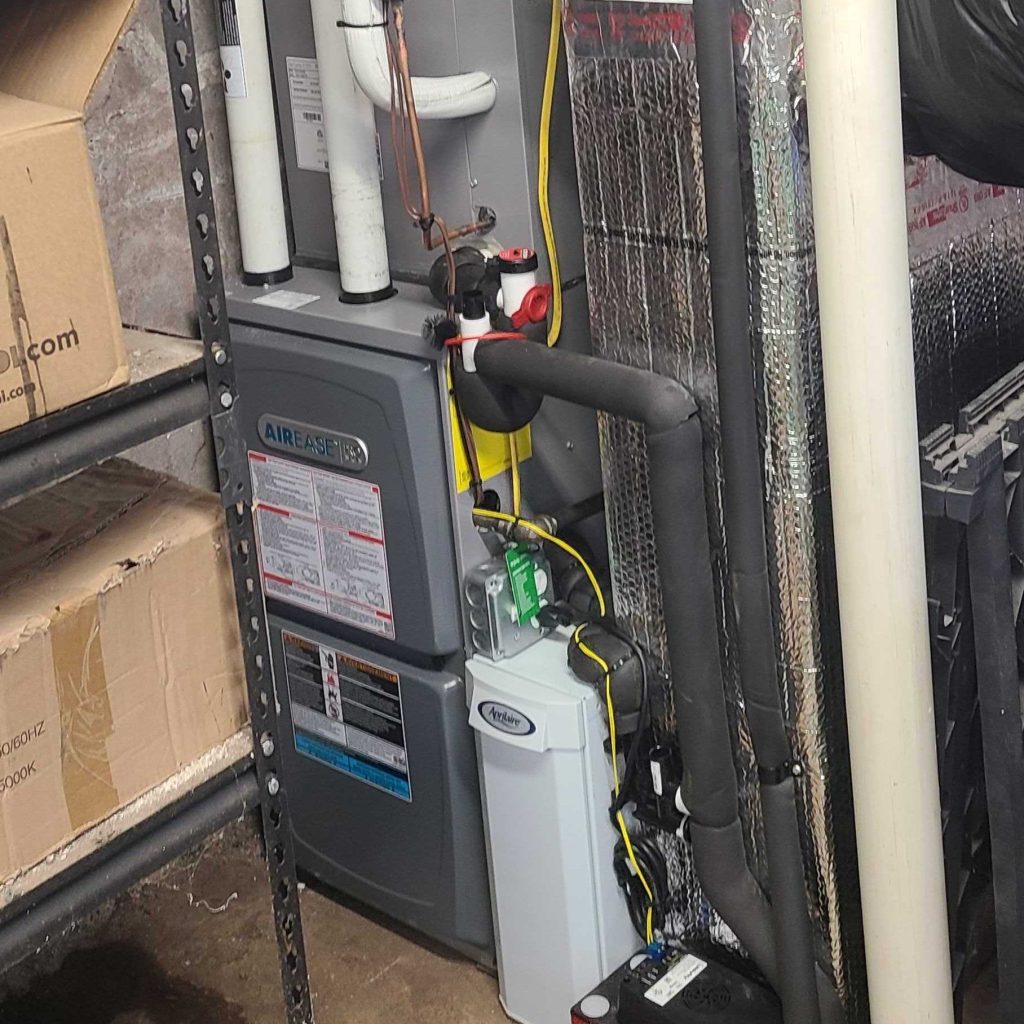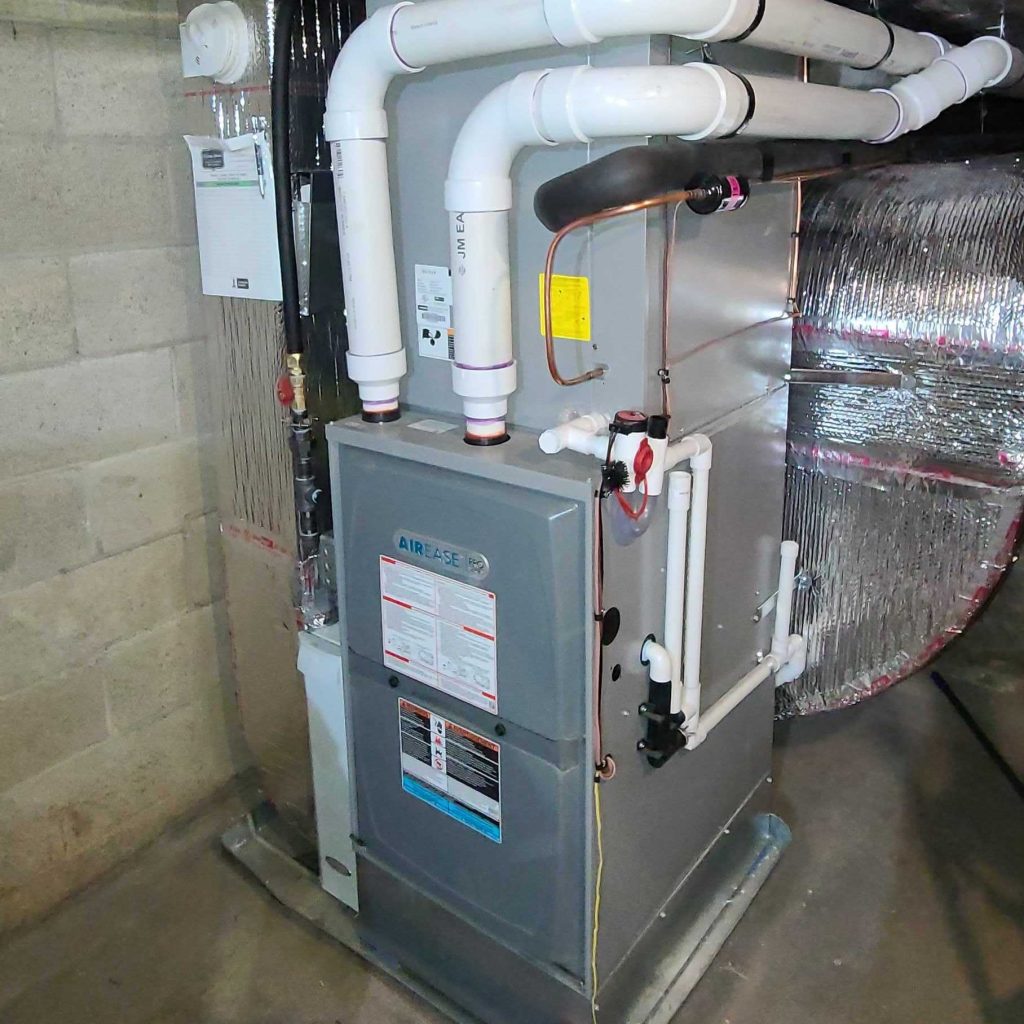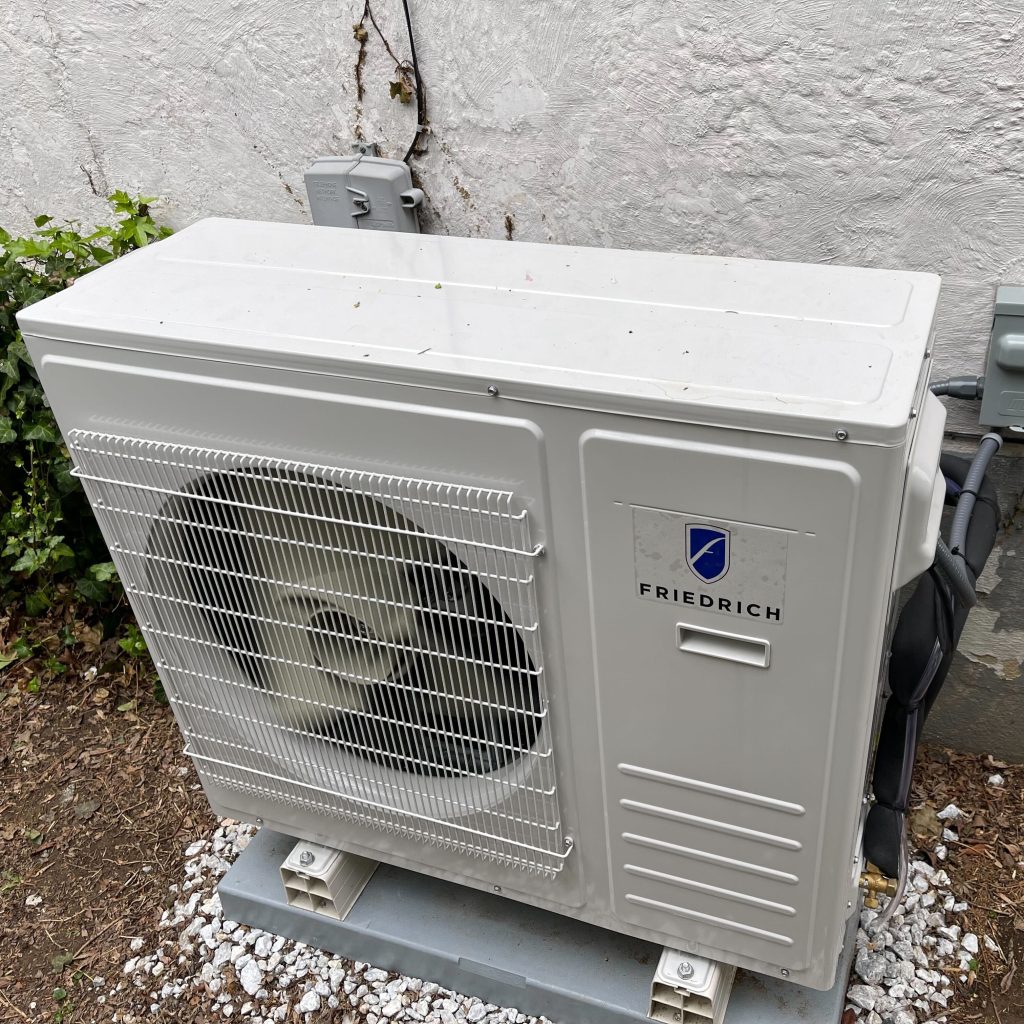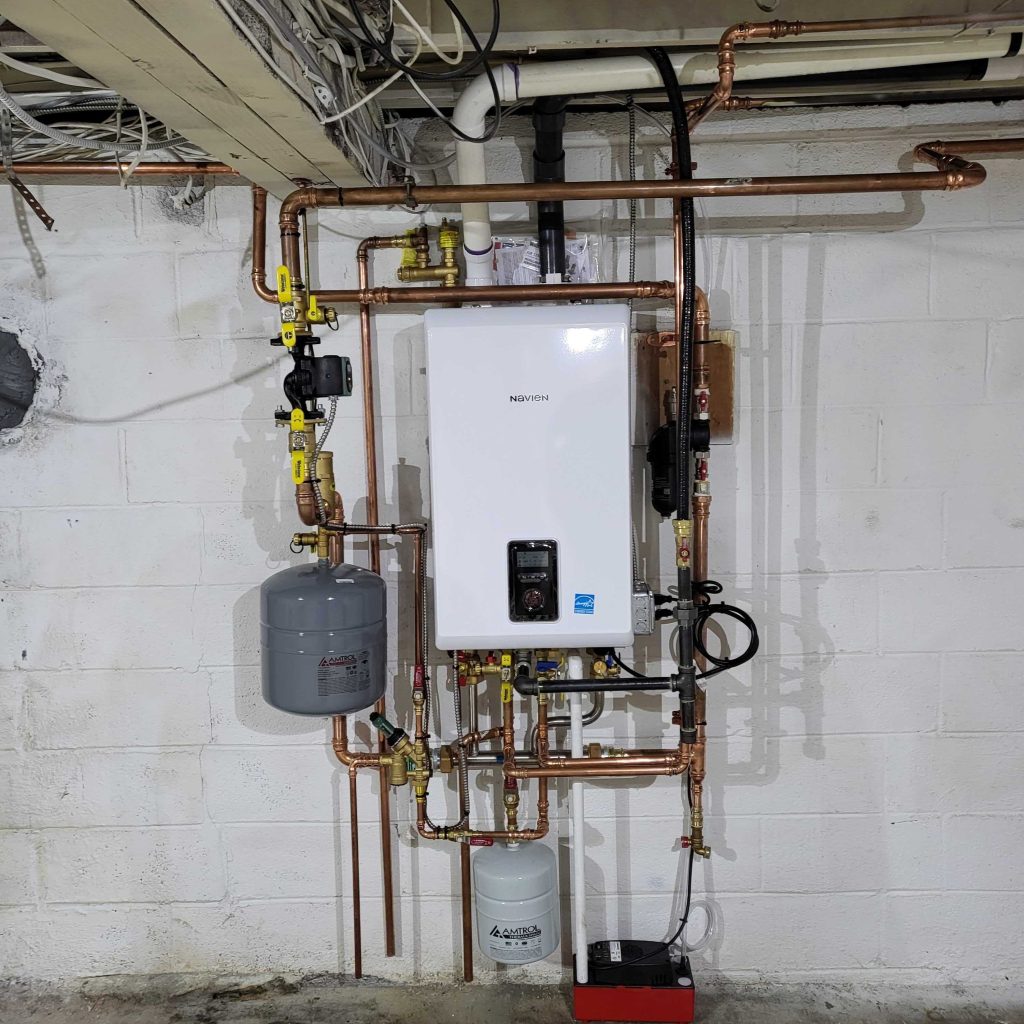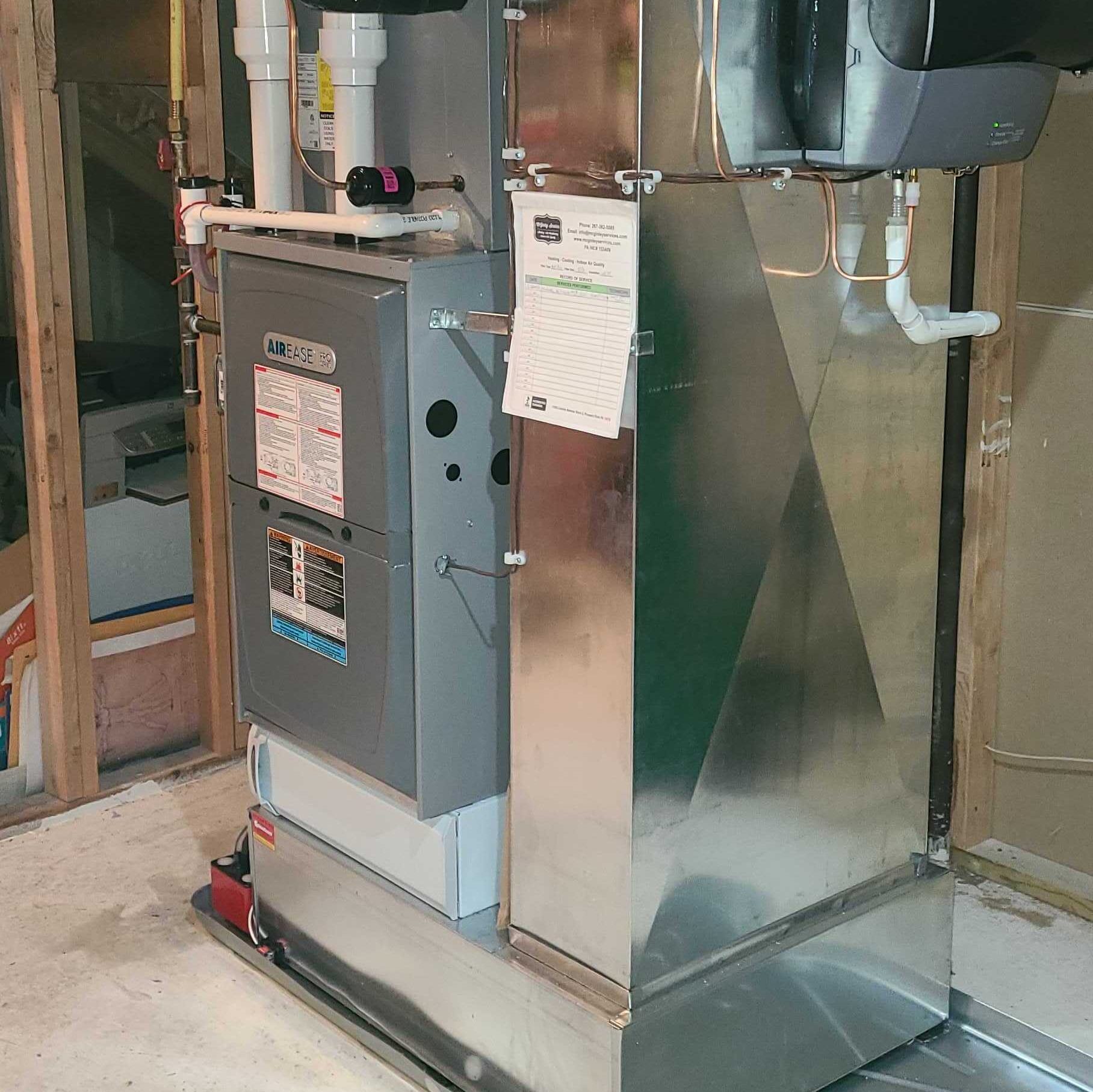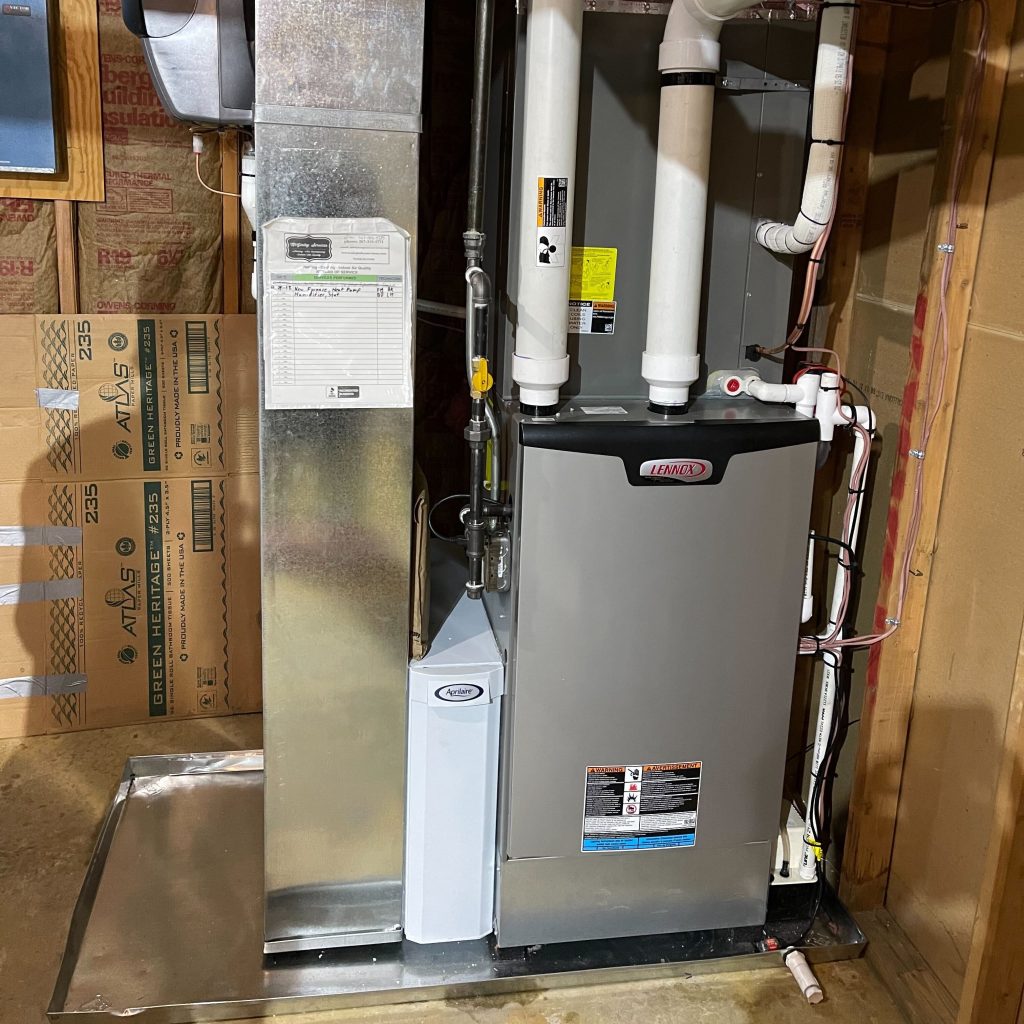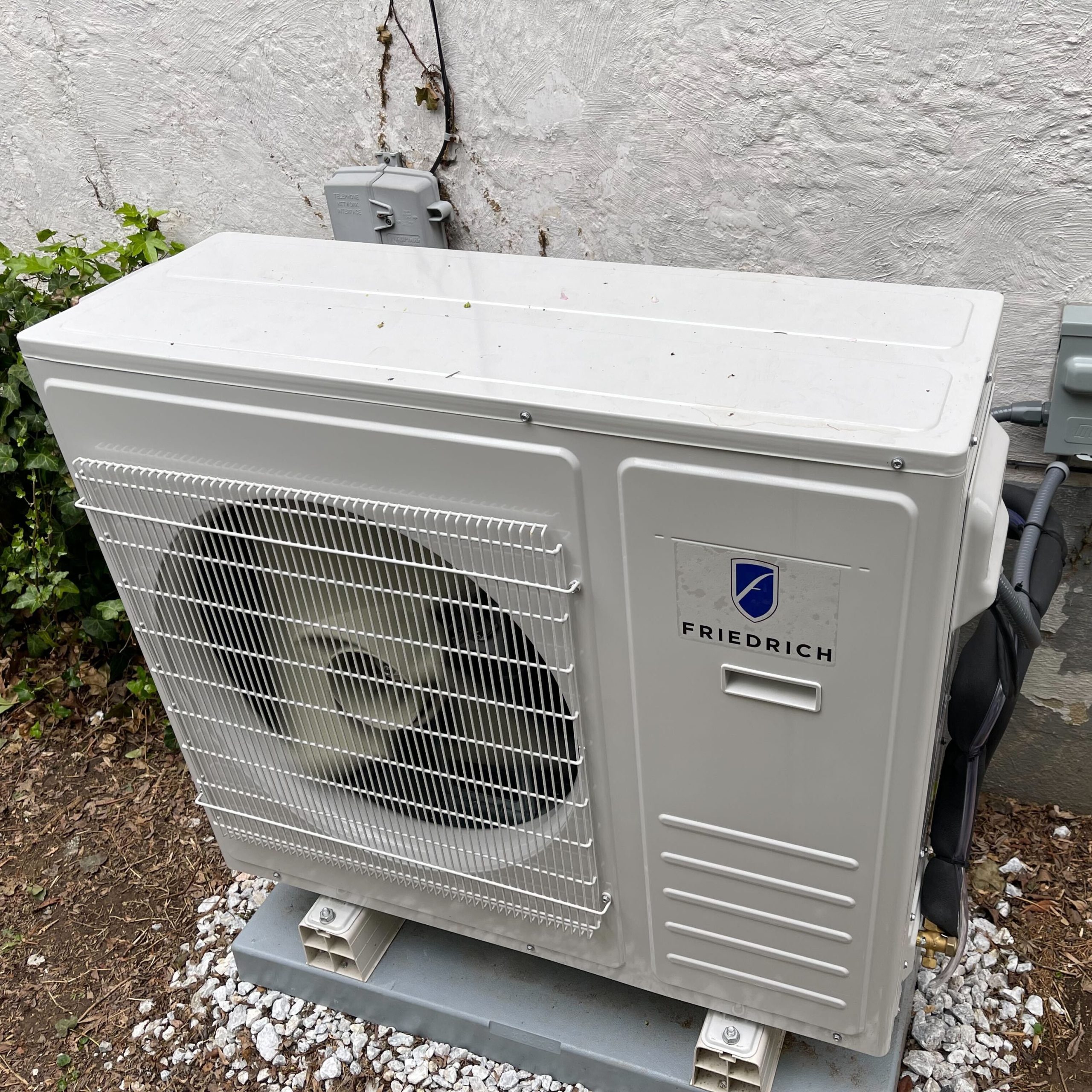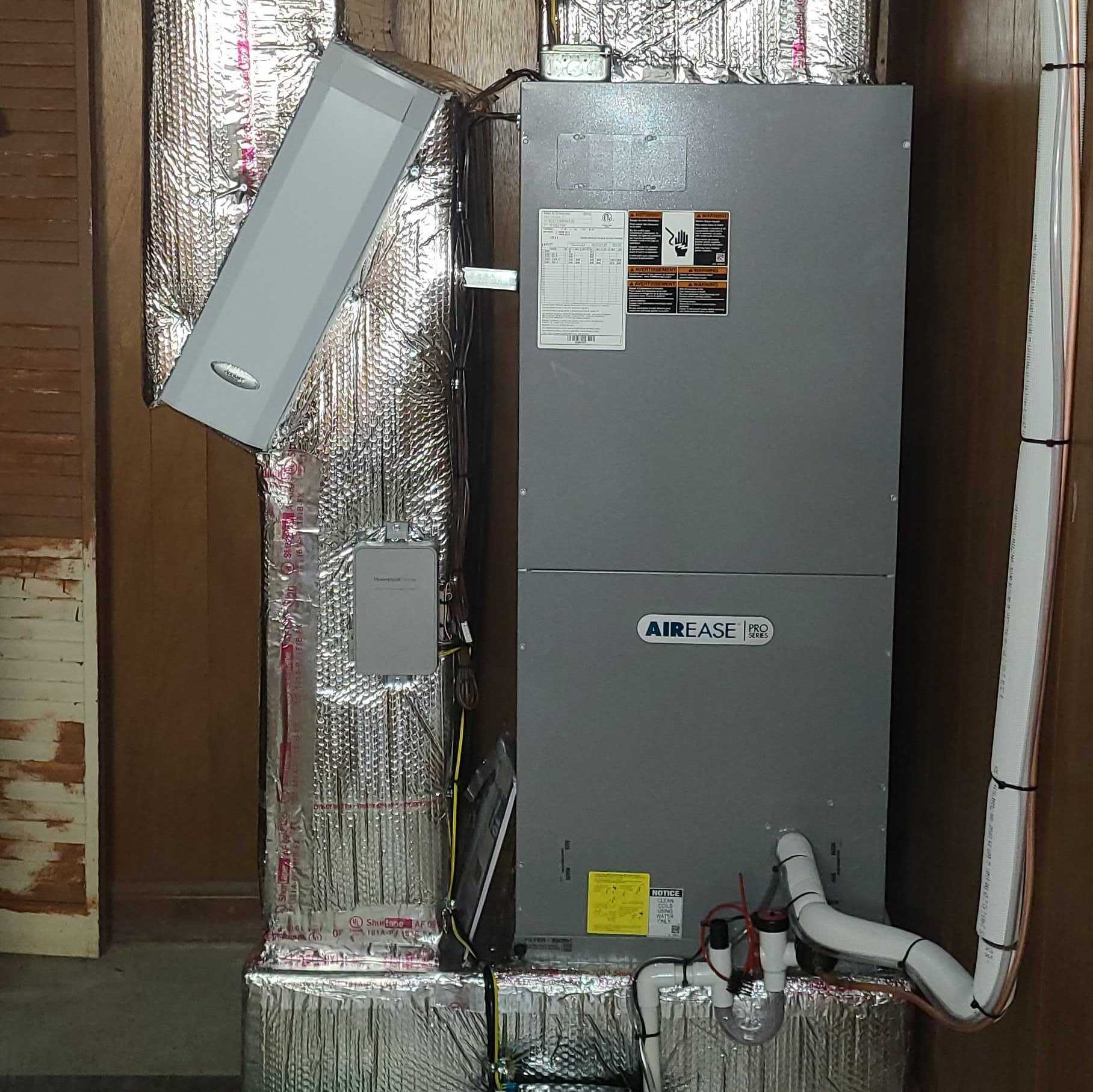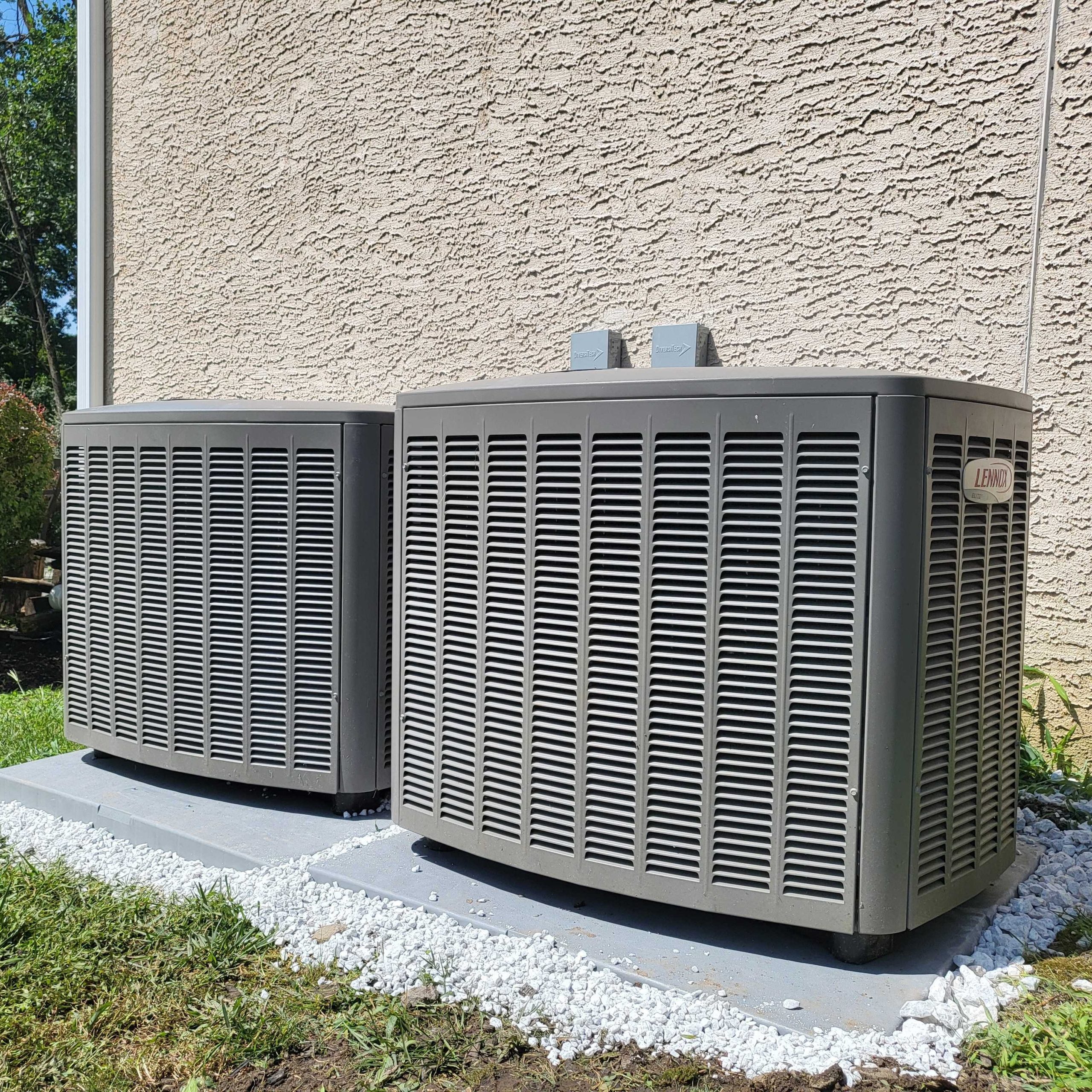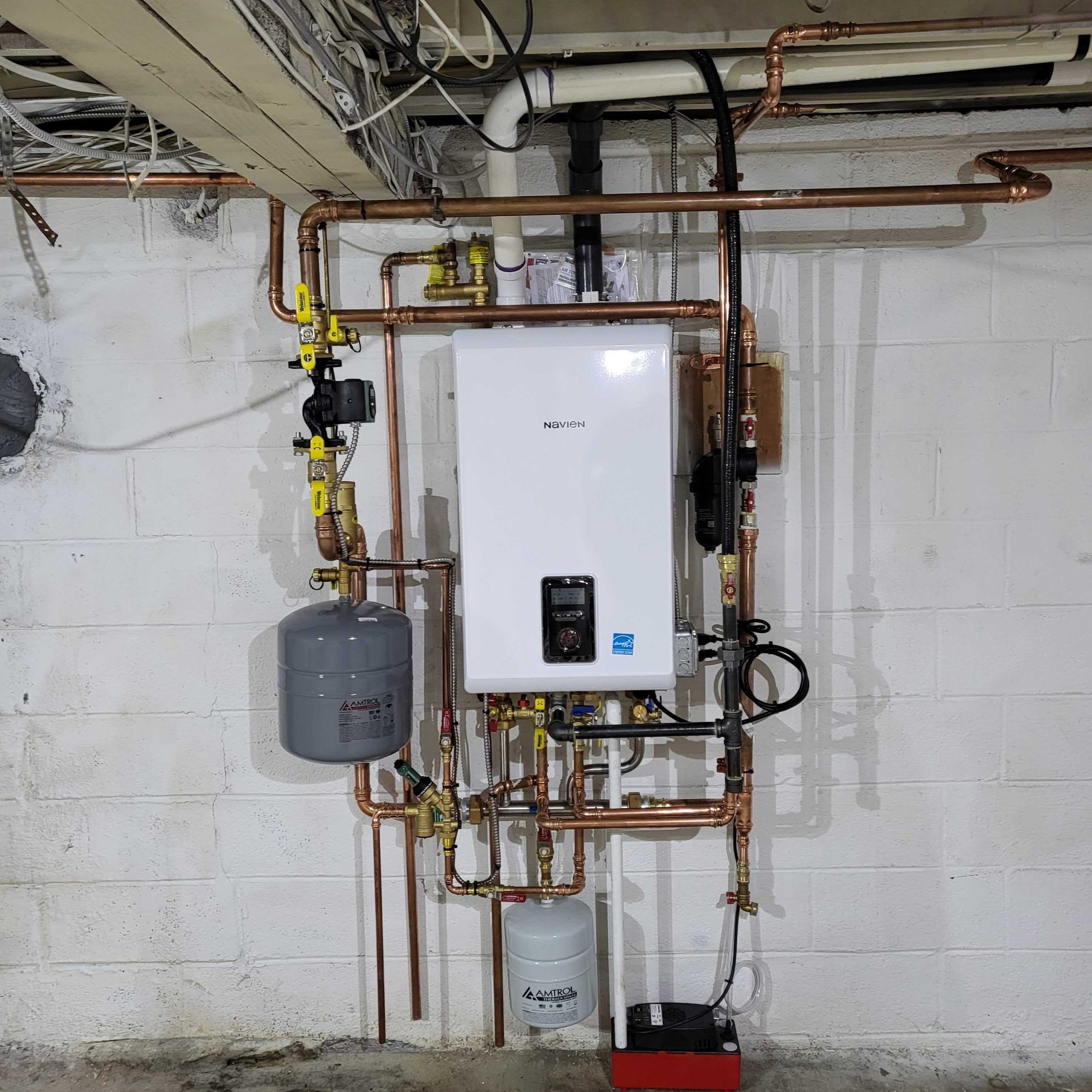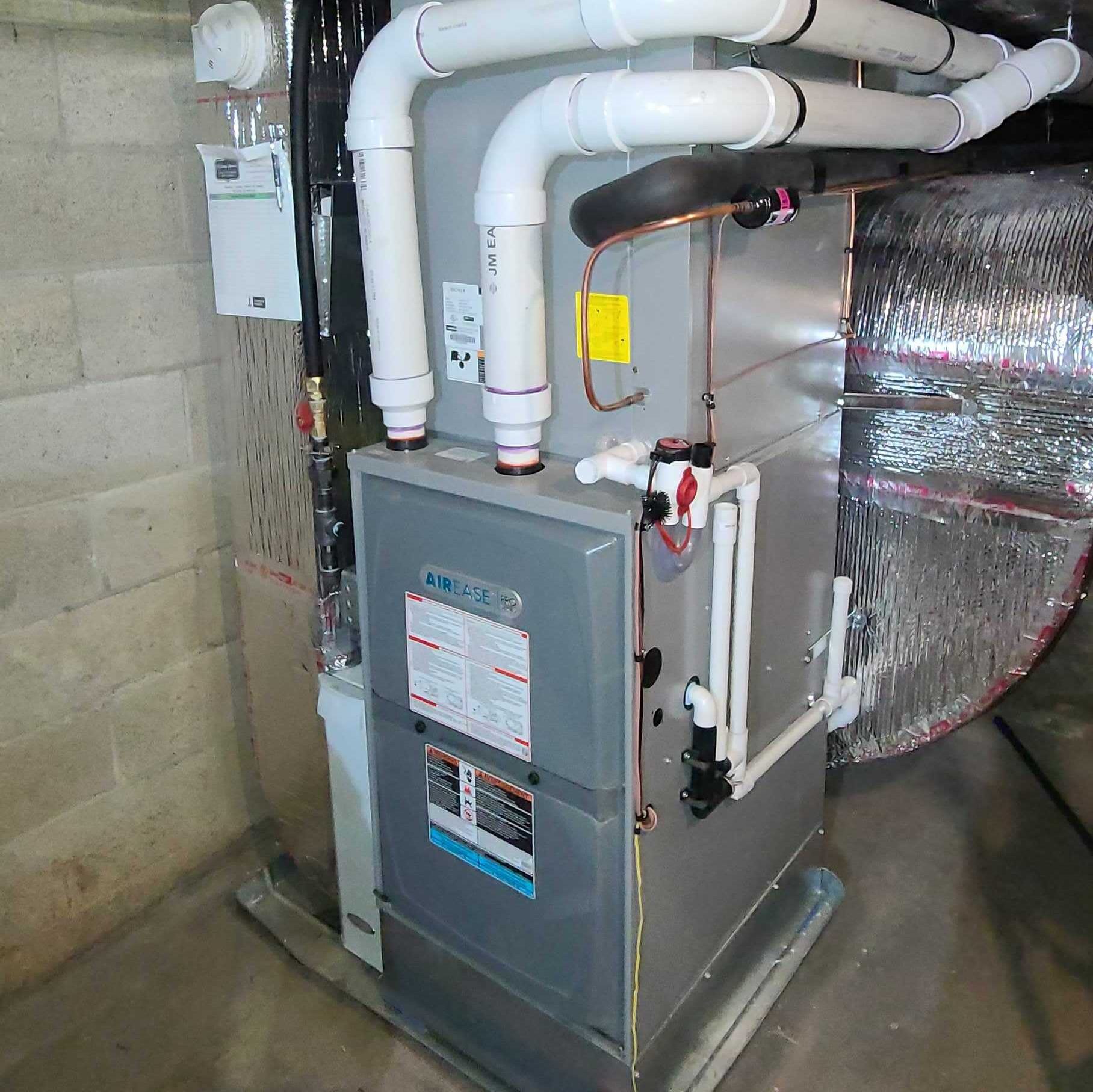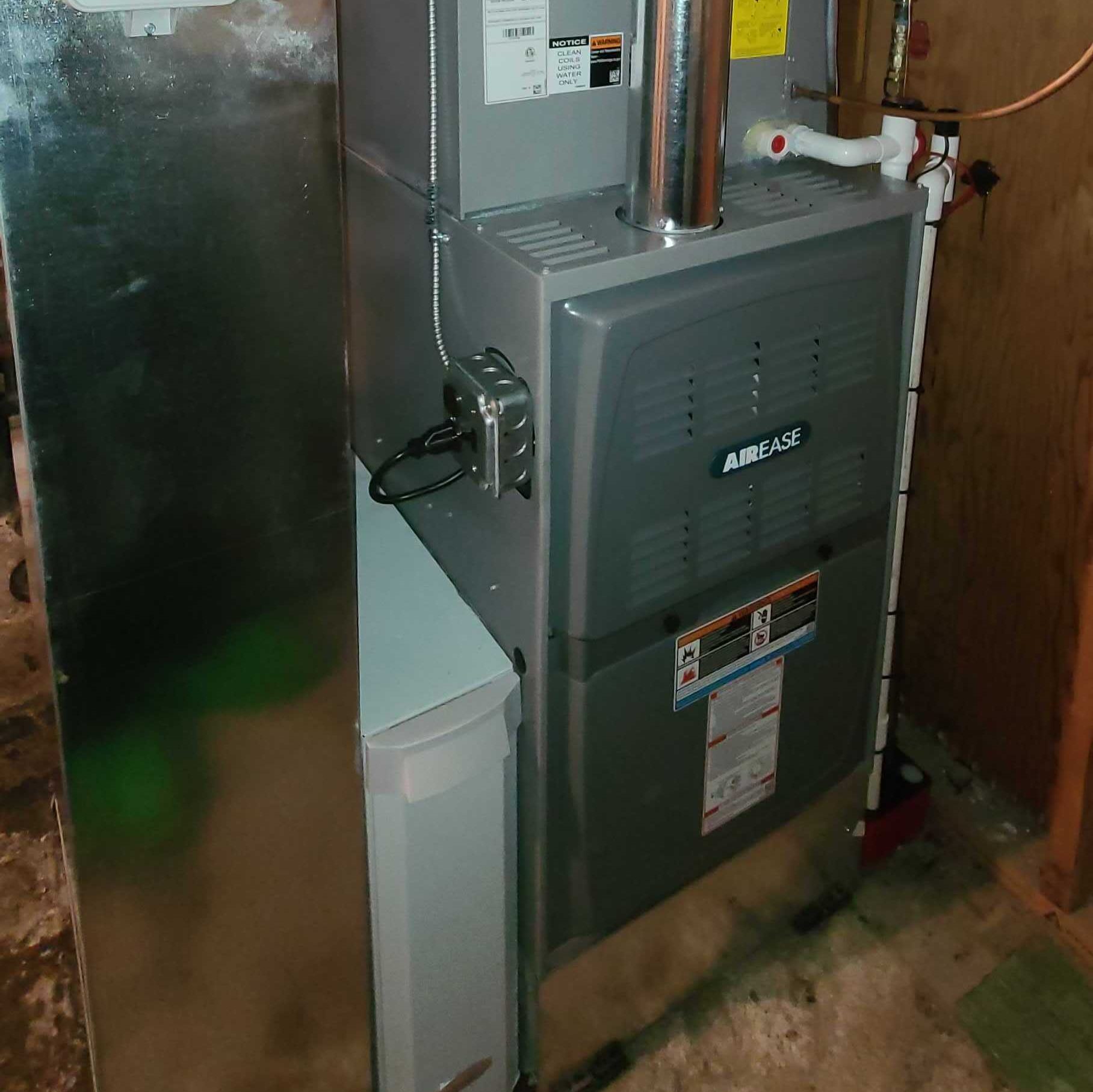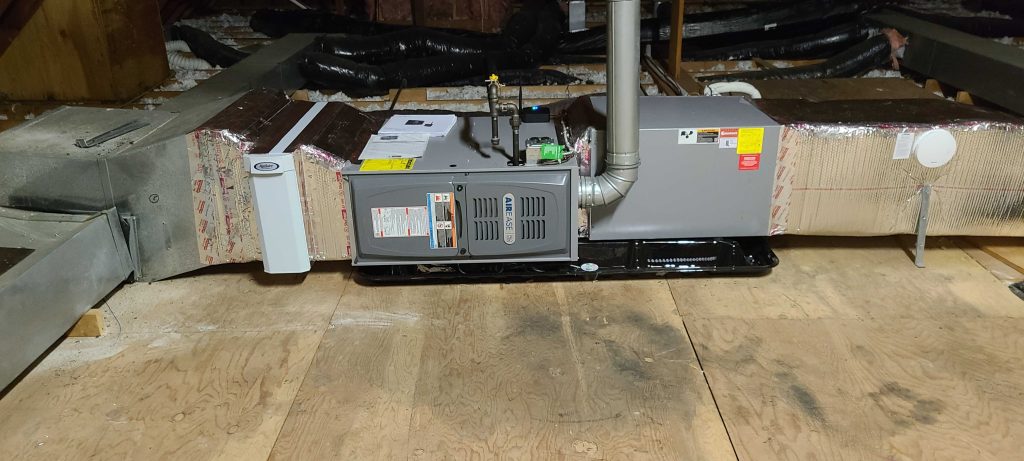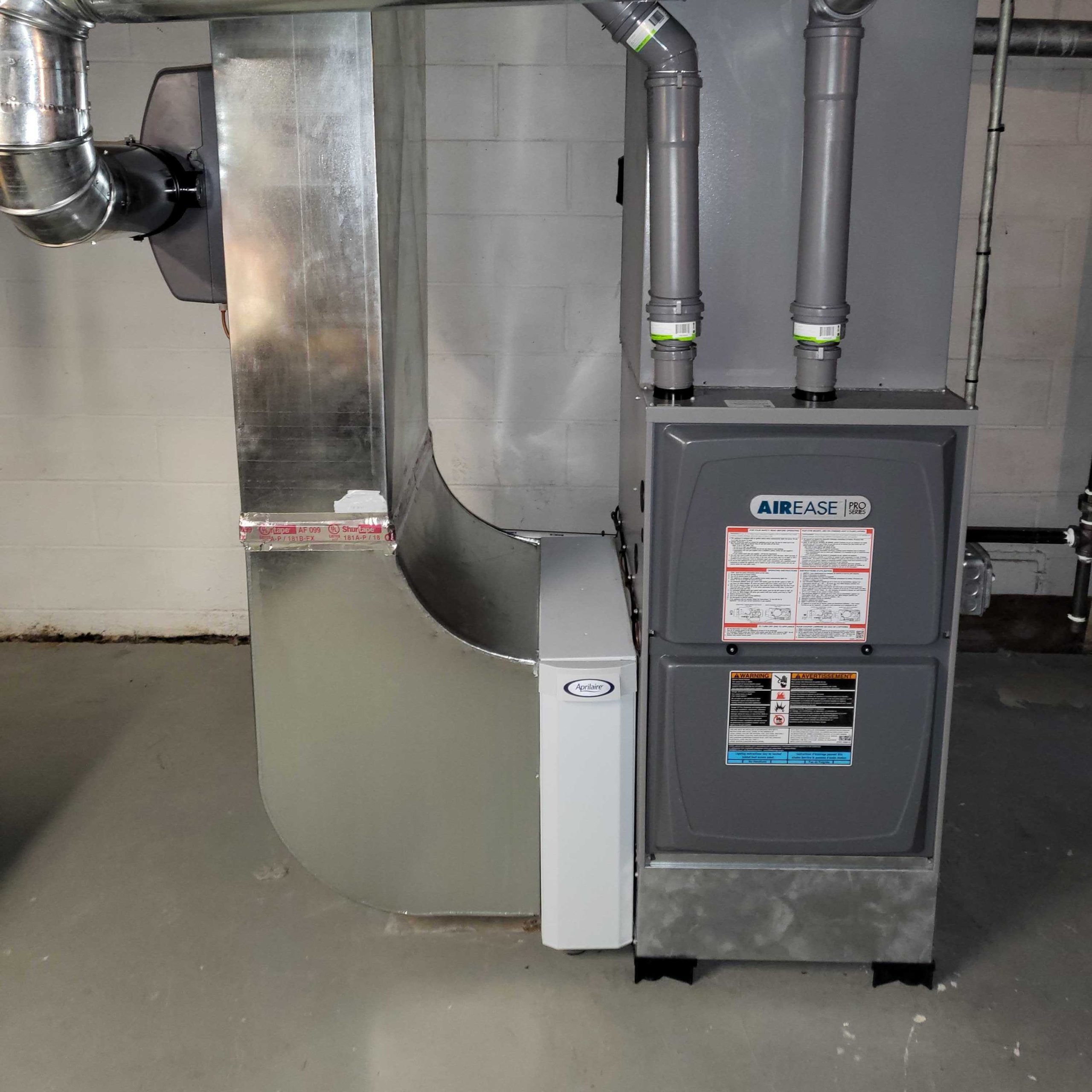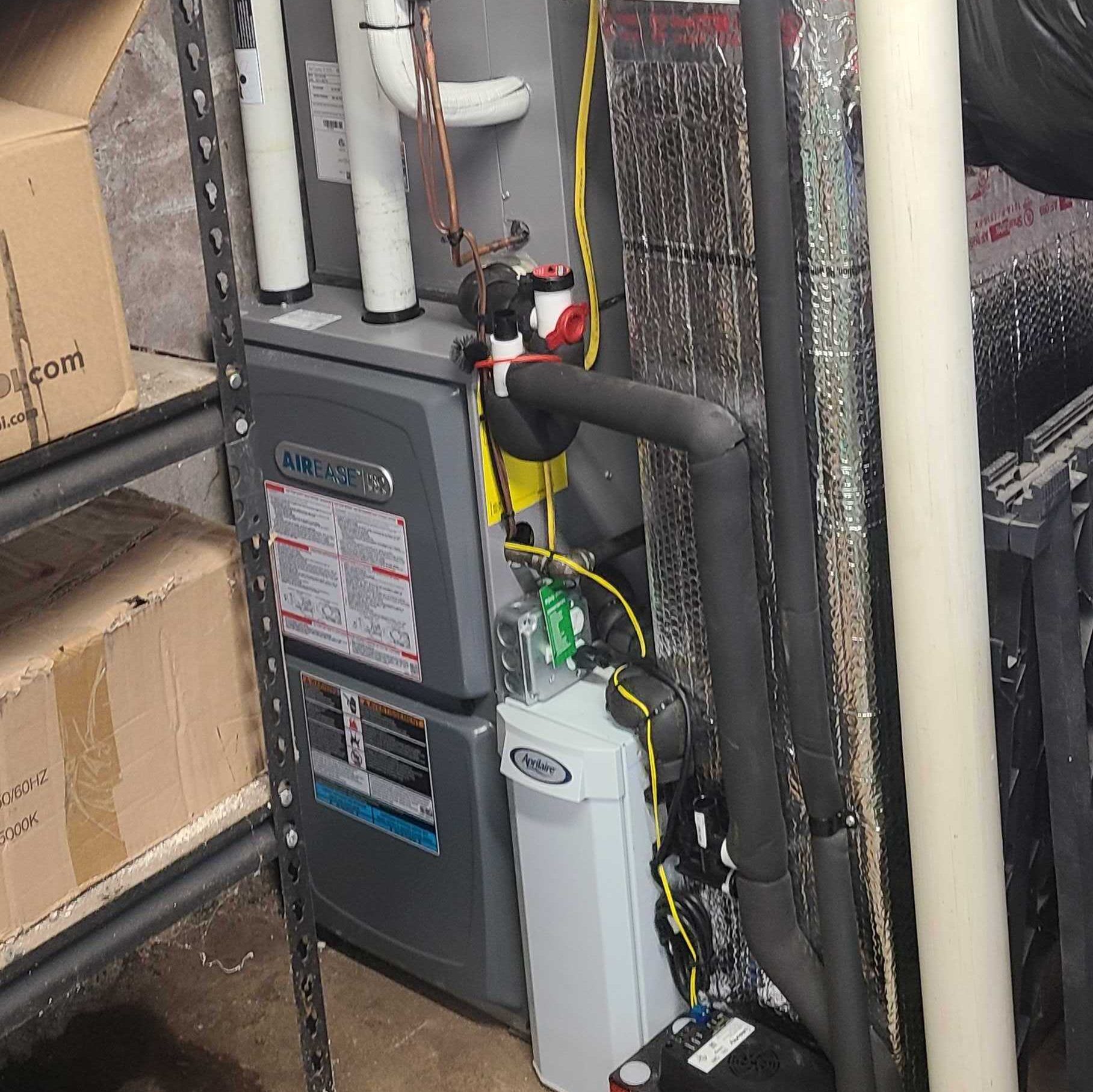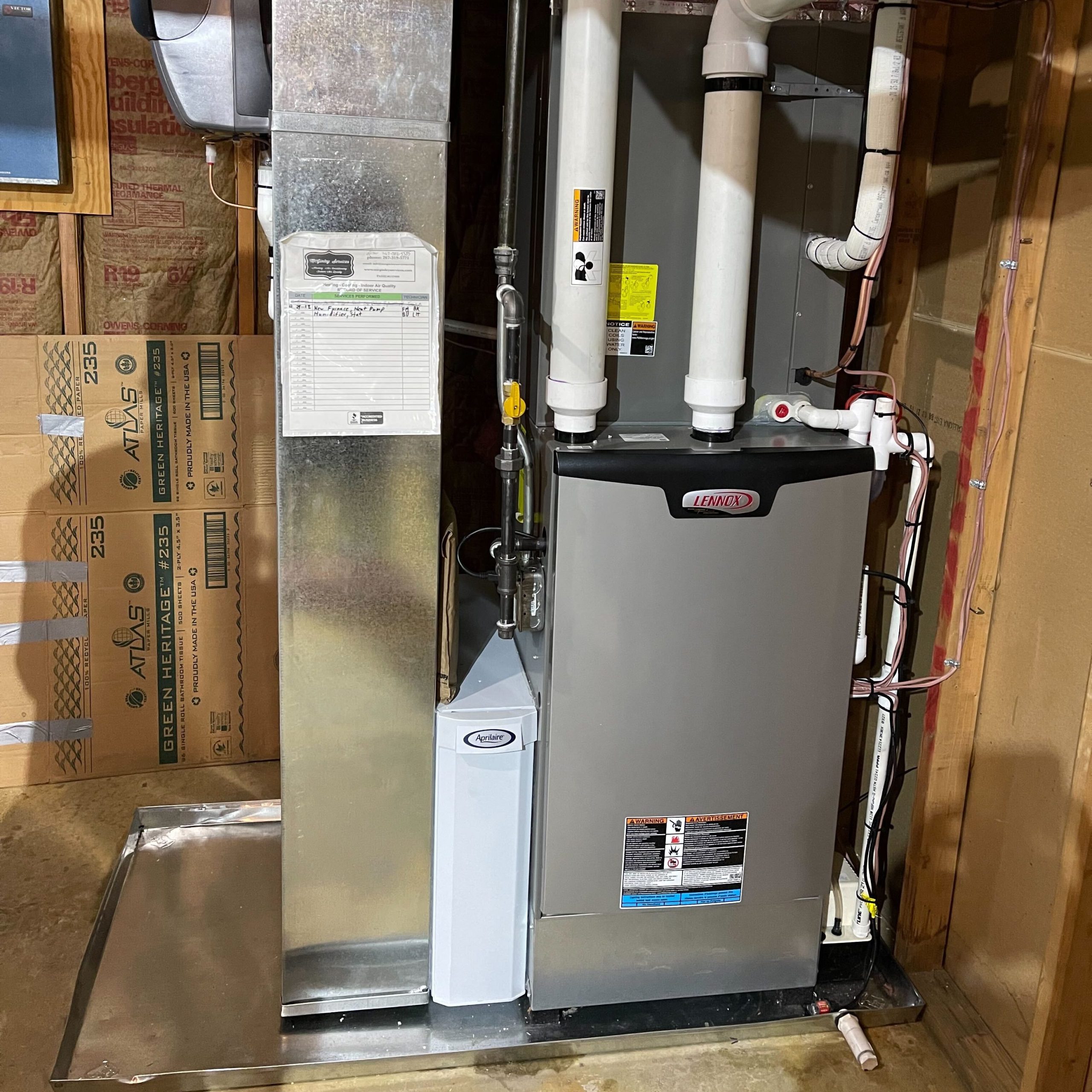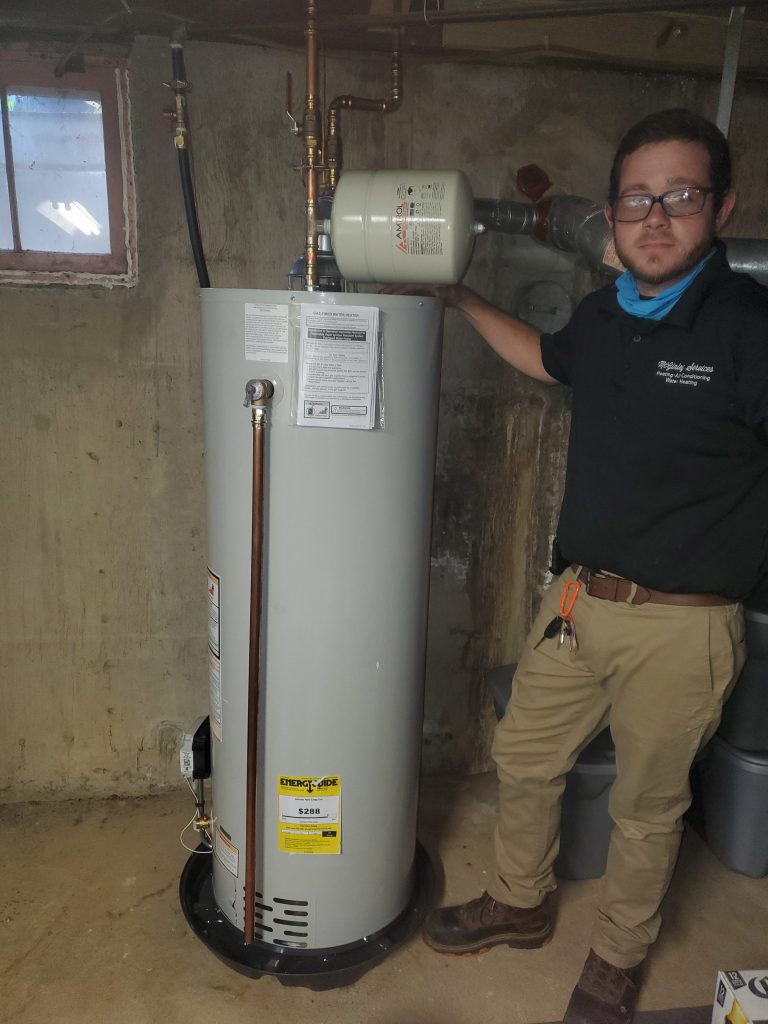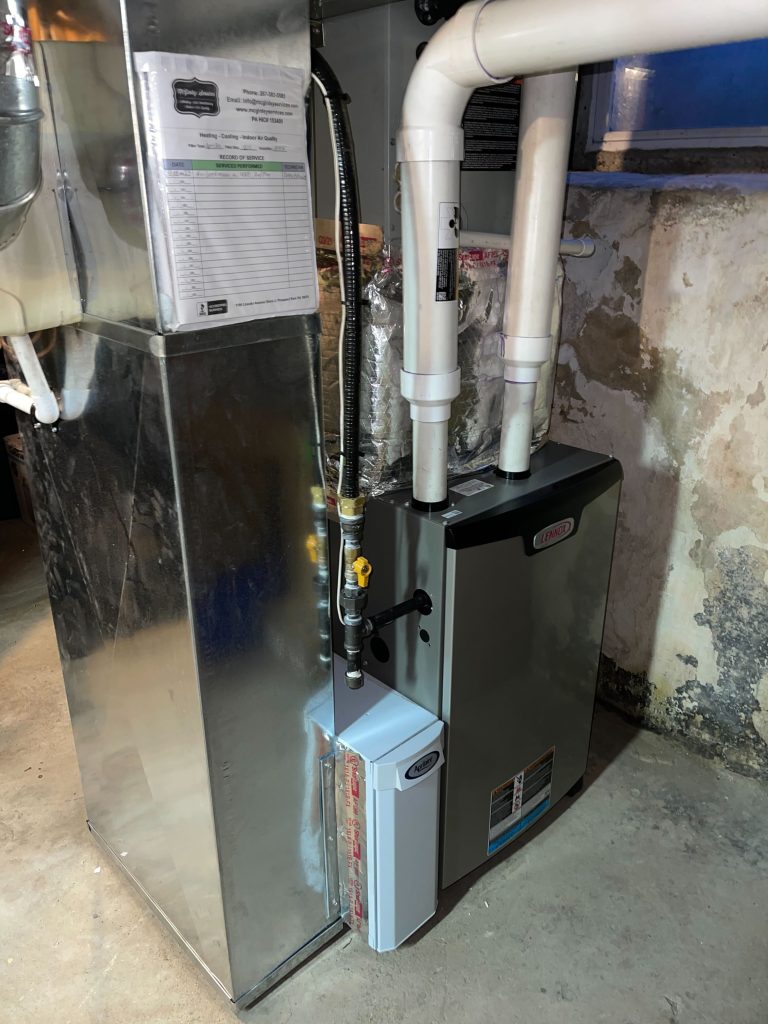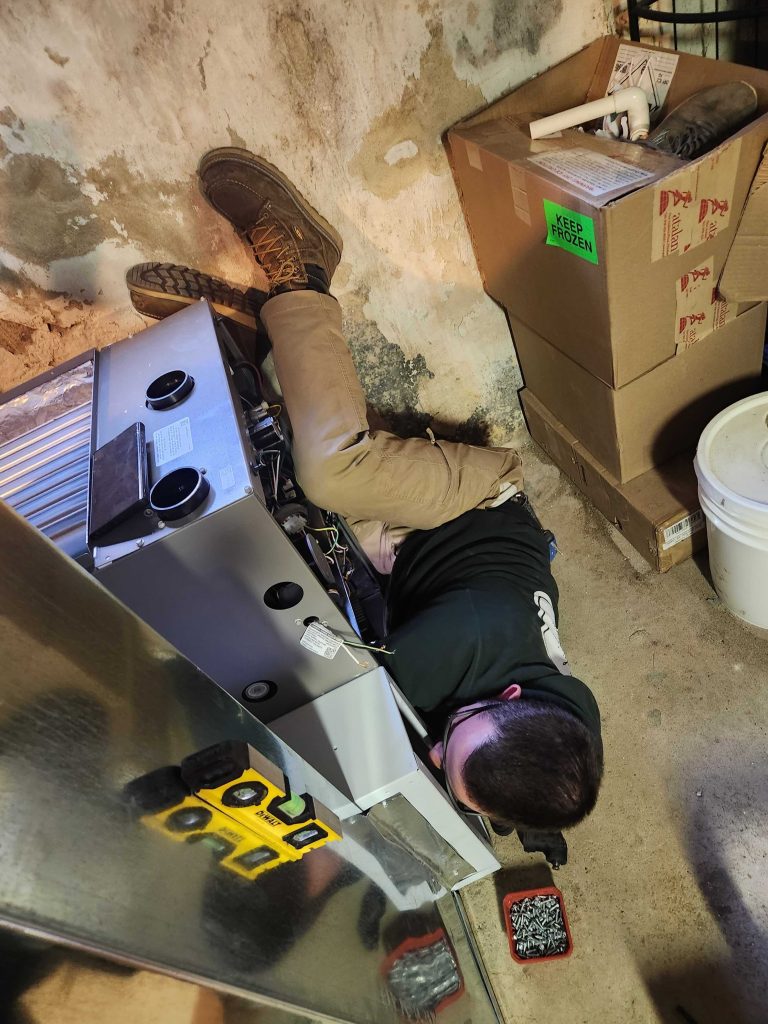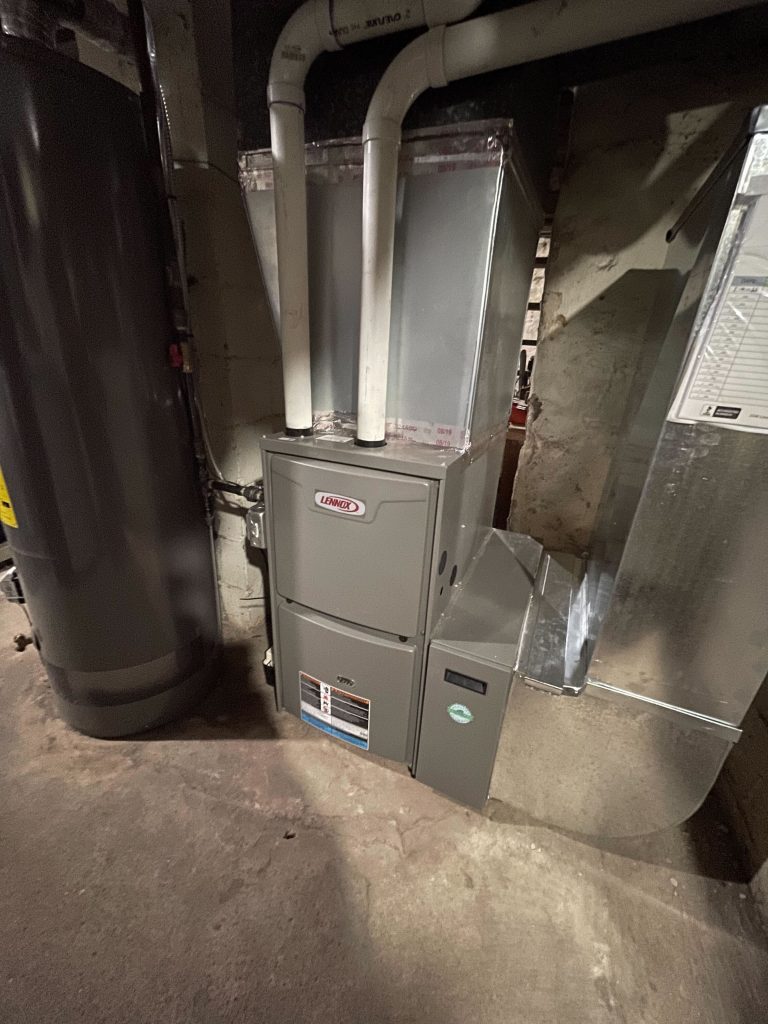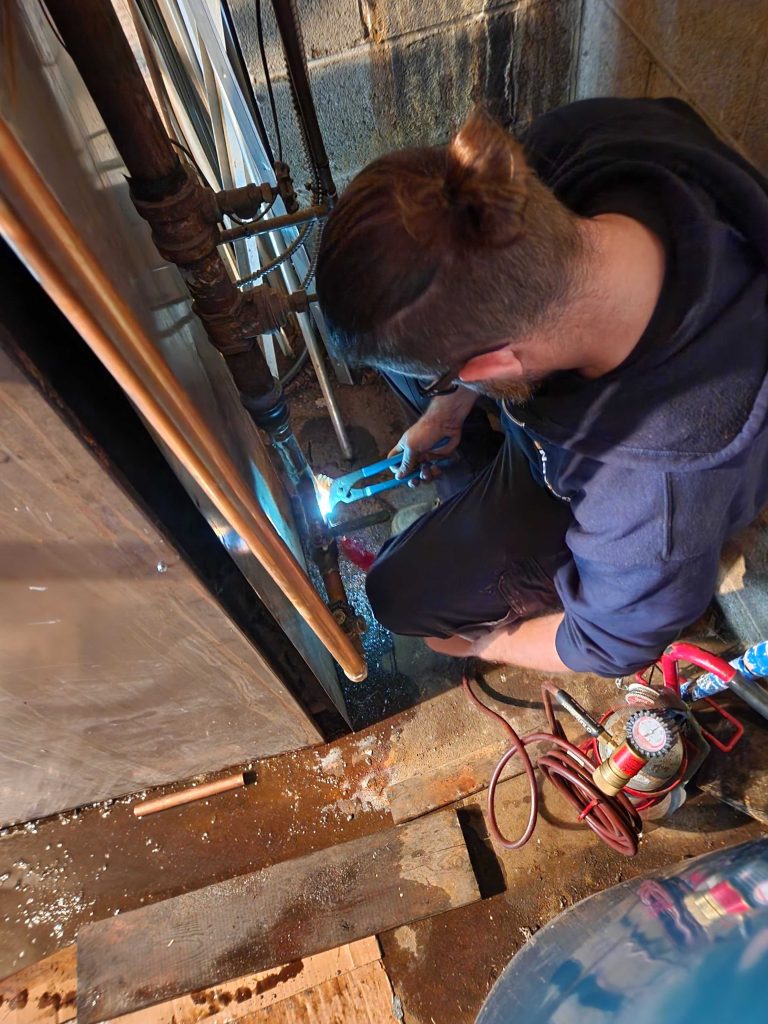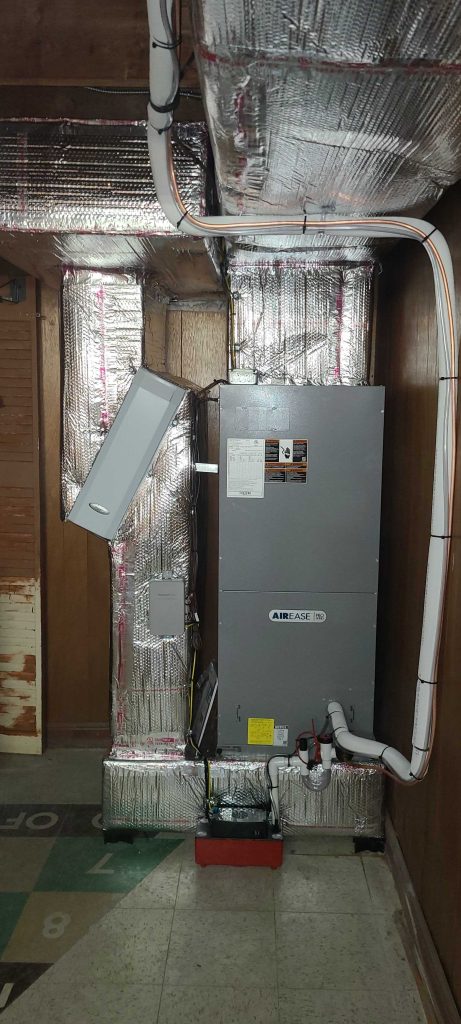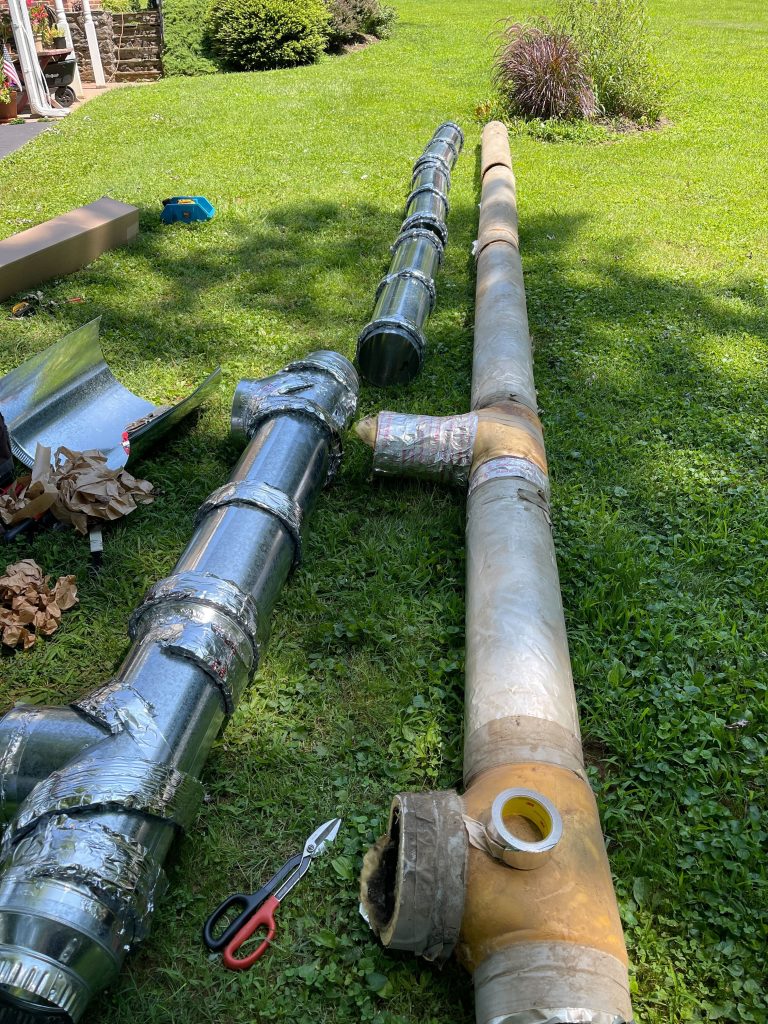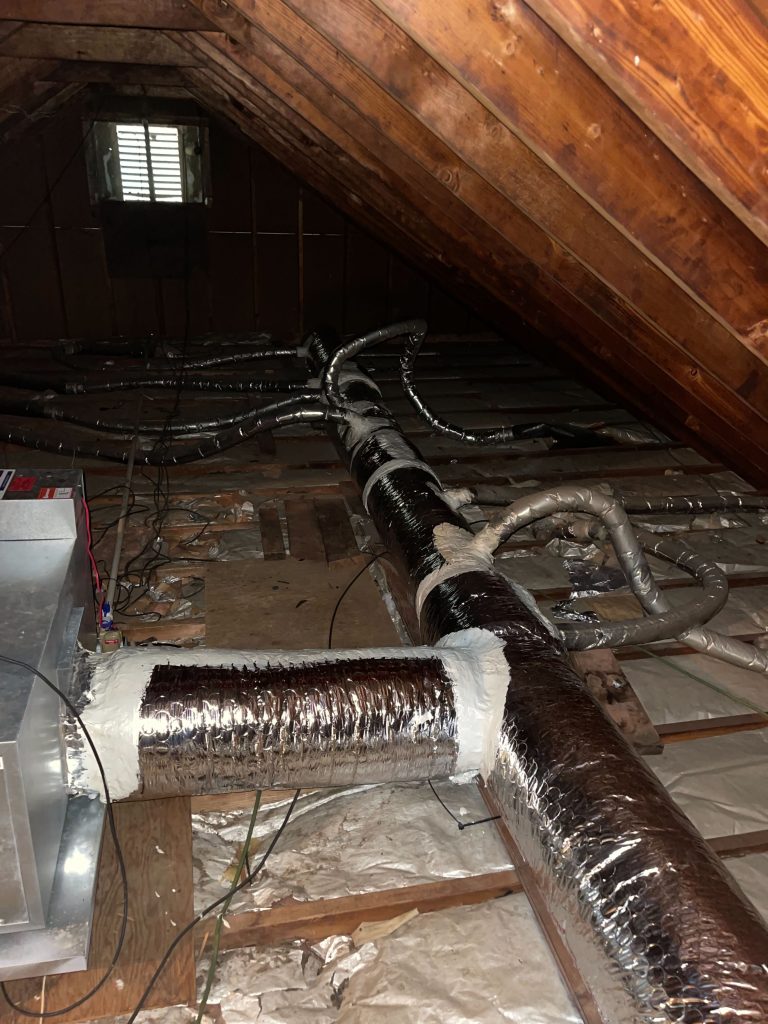The Short answer, yes you should for 5 Reasons
- They do heating and cooling, that doesn’t mean to get rid of your oil or gas heating system. It simply is great to equip your home with more than once source of heating.
- Heat pumps are optimally efficient from about 20-55 degrees. meaning it may be cheaper to use a heat pump that to operate your fossil fuel heater.
- Peco Rebates and Federal tax incentives are at the front of mind for 2024. This can greatly of set the cost difference making it even easier to make your home a “hybrid home”. Learn more
- Safety! Being a heat pump is powered by electric and is just moving heat from one place to another, There is no worry about combustion byproducts.
- Environmental impacts can be lessened. Starting with if you can opt for greener energy to your home, You might be able to extend the life of your primary heating source not only cutting down on fuel consumption but limiting the replacement cycle lowering your carbon foot print.
When the time comes to replace your AC system, homeowners are faced with a myriad of options. Among them, heat pumps are increasingly becoming a popular choice due to their efficiency, versatility, and eco-friendliness. But what makes a heat pump an excellent alternative to traditional air conditioning systems? Let’s dive into how heat pumps can cool your house, their working mechanism, their effectiveness in various climates, and their performance in cold weather.
Can a Heat Pump Cool a House?
Absolutely! Heat pumps are not only for heating; they’re a two-in-one solution that can cool your house efficiently. During warmer months, a heat pump works by extracting heat from inside your home and transferring it outdoors, similar to a conventional air conditioner. This process reverses in colder months, providing heating by extracting heat from outdoor air and transferring it inside. This dual functionality makes heat pumps a versatile choice for both cooling and heating your home.
How Does a Heat Pump Work?
Heat pumps operate on a simple principle: move heat from one place to another. They use a refrigerant to absorb and release heat as it circulates between the indoors and outdoors. In cooling mode, the heat pump absorbs heat from the indoor air through the evaporator coil and releases it outside through the condenser coil. This process involves a cycle of evaporation, compression, condensation, and expansion, efficiently managing the temperature of your home.
How Does a Heat Pump Air Conditioner Work?
In essence, a heat pump air conditioner works by reversing the flow of refrigerant. This allows the system to offer cooling during the summer and heating in the winter. When in cooling mode, it functions similarly to any standard air conditioner by extracting indoor heat and releasing it outdoors. The beauty of a heat pump air conditioner lies in its ability to reverse this process, offering an all-in-one heating and cooling solution.
Where Do Heat Pumps Work Best?
Heat pumps are most efficient in mild to moderate climates where the temperature rarely drops below freezing. The old “fact” that is now Myth that “heat pumps don’t work below 32F.” This Certainly was true, However, advancements in technology have significantly improved their efficiency and performance, making them viable options in colder regions as well. Places like Delaware County, PA, can benefit greatly from heat pump installation, offering a year-round heating and cooling solution with one system.
Will Heat Pumps Work in Cold Weather?
This is a common concern, but today’s heat pumps are designed to work efficiently even in cold weather. Modern systems can extract heat from outdoor air as low as -15°F, thanks to advances in refrigerant and compressor technology. While their efficiency might decrease as the temperature drops, they can still provide significant heating capacity. For extremely cold climates, a hybrid system that combines a heat pump with a gas furnace can ensure comfort and efficiency throughout the winter.
Conclusion
When it’s time for an AC system replacement, considering a heat pump is not just an option; it’s a forward-thinking decision. Heat pumps offer an efficient, versatile, and eco-friendly solution for both cooling and heating your home. With the ability to cool in the summer and heat in the winter, they’re suitable for a wide range of climates, including those with colder winters.
For homeowners in Chester County, Montgomery County, And Delaware County, PA, looking for “HVAC near me” or “AC repair” services, exploring the option of a heat pump could lead to significant savings on energy bills and a reduced carbon footprint. Whether you’re interested in “boiler installation,” “furnace installation,” or “air conditioning installation in Ardmore, PA,” considering a heat pump could be the smartest move for your home’s comfort and your wallet.
Remember, when searching for “HVAC companies near me” it’s crucial to choose a provider experienced in heat pump technology to ensure optimal installation and maintenance. Heat pumps are not a trend; they are a sustainable solution for year-round comfort. Call McGinley Services to discuss installing a heat pump.
